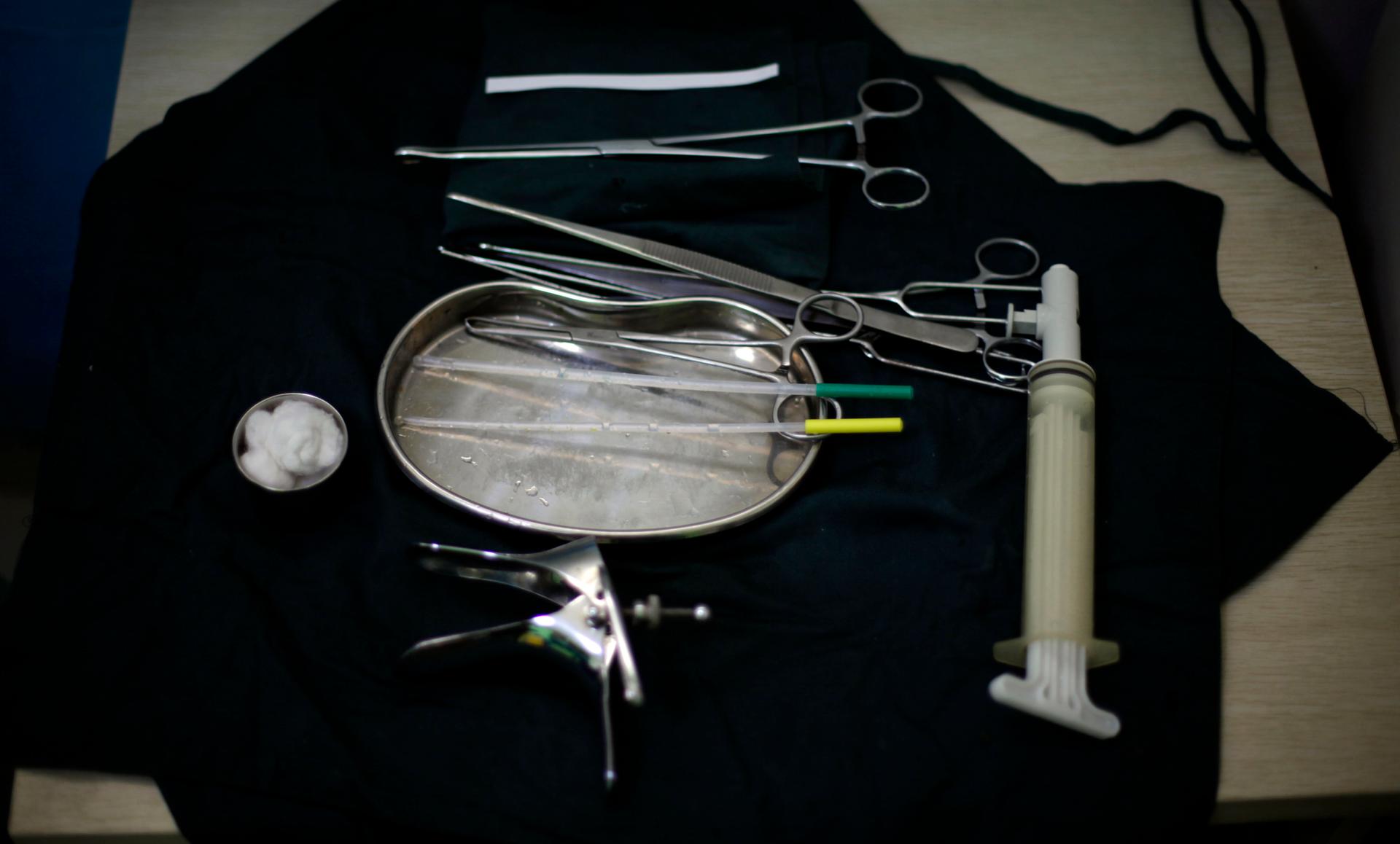Christina Wang, a mother of two, considered having an abortion when she was pregnant with her second child.
It was at a time before China’s one-child policy was reversed, and she risked getting fired from her job if she went through with the pregnancy.
“I was just a mess. For three months, I just couldn’t make a decision,” she said. “I went to the hospital and the doctor asked, ‘Do you want to keep it?’ I kept going back and forth, but finally, I decided to have the baby.”
For more than 30 years, the Chinese government had restricted most people to having only one child. Women had to apply for permission to give birth and prove that they didn’t have any other children. That led to a massive drop in the country’s birth rate.
Illegal and forced abortions were common. But in 2015, that policy changed, and two children were allowed. Then last year, the government loosened the policy even further, which now allows couples to have up to three children.
Related: Shanghai sees exodus as people flee China’s lockdown woes
When Wang finally decided to have her second child, she and her family ended up facing the consequences. She had to quit her job at a university, and she couldn’t get a hukou, or “identity papers,” for her daughter without having to pay a heavy fine.
Wang’s parents didn’t approve of her decision even though they, themselves, did the same thing decades earlier, after Wang’s mother became pregnant with her when their birth control failed.
“My mom was the same,” she said. “She wasn’t supposed to have me. After I was born, she was sterilized and docked a year’s salary, but luckily she was not forced to have an abortion.”

Scientist Yi Fuxian remembers that era.
Related: Uyghurs in Saudi Arabia risk deportation to China
“So many women who were being threatened with forced abortions would reach out to me for advice,” he said.
Yi is a demographer at the University of Wisconsin. Back in 2000, he began a crusade against China’s one-child policy, arguing that it was completely unnecessary. He wrote articles online and recommended that the government abandon the policy altogether. At the time, his views were not welcome, and a book he wrote on the topic was banned.
“The government didn’t realize how serious China’s population crisis would become. They were afraid of an explosion in population growth and worried the health care system couldn’t handle it. So, they chose to regulate the number of births,” he said.
And in China, where boys have long been heavily favored, many parents would secretly abort female fetuses. Single women often turned to abortion, too. The result, Yi said, is that China currently has one of the highest abortion rates in the world.
Related: Poland’s ‘pregnancy registry’ will further restrict abortion access, activists say
Now, as a result of the failed one-child policy, China is saddled with a whole stack of problems — an extreme gender imbalance, a declining birth rate and a quickly aging population. Also, reforms to family planning policies haven’t been the quick fix that officials had hoped for. And as China’s birth rate continues to drop, Wang said that few people want to have any more children.
“No one even wants a second child, because the costs of raising a child are just too much, and there is little social support.”
“Don’t even talk about three kids,” she said. “No one even wants a second child because the costs of raising a child are just too much, and there is little social support.”
Related: Northern Ireland decriminalized abortion 3 years ago. But services are still difficult to access.
Earlier this year, China’s family planning association announced that it would take measures to reduce the number of abortions for unmarried women.
Yi, the demographer, said that now the government is trying to swing the pendulum back in the other direction.
“The government used to encourage abortion and in some cases would do forced abortions,” he said. “But now, they are trying to limit abortions. Now, in hospitals, it isn’t as easy to get an abortion; instead they want to encourage women to give birth.”
He added, though, that it’s easier said than done.
“It’s easy to force people not to give birth,” Yi said. “But to force people to have children? That’s impossible.”
